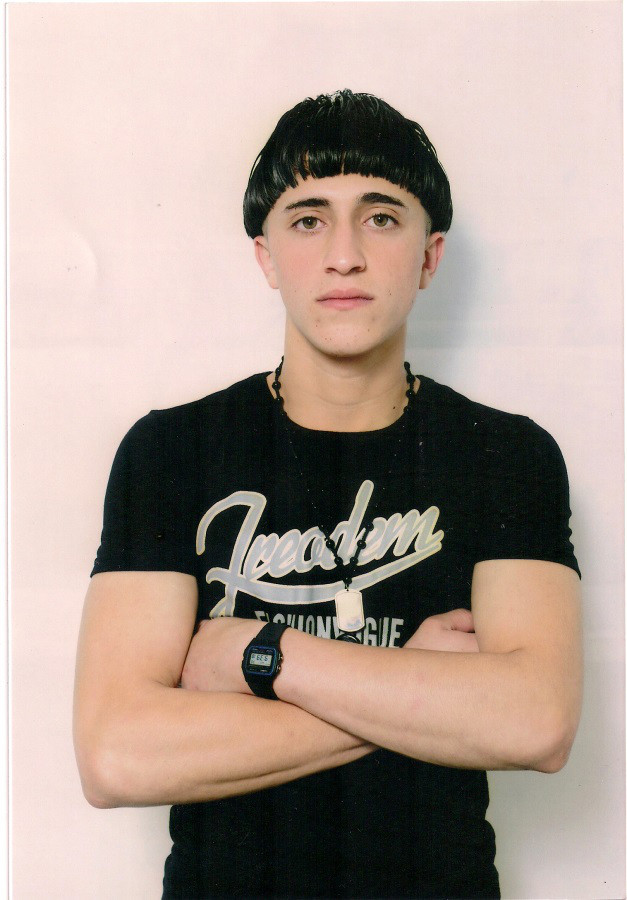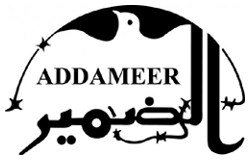Five Palestinian youths, known as the “Hares boys,” after their home village in the West Bank, have concluded a nearly three-year military trial by agreeing to a plea deal with Israeli occupation authorities.
They will each serve 15 years in prison.
 Ali Shamlawi, Muhammed Kleib, Muhammed Suleiman, Ammar Souf and Tamer Souf, all 16 and 17 when they were arrested in March 2013, were charged with 20 counts of attempted murder.
Ali Shamlawi, Muhammed Kleib, Muhammed Suleiman, Ammar Souf and Tamer Souf, all 16 and 17 when they were arrested in March 2013, were charged with 20 counts of attempted murder.
Israel alleges they threw stones on a highway that connects Israeli settlements in the central West Bank to Tel Aviv and other towns in present-day Israel.
The young men all maintained their innocence and said that the Israeli accusations were based on confessions extracted by torture.
A settler crashed her car into a truck, causing significant injury to her three young daughters. The woman claimed she had crashed the car due to Palestinians throwing stones. There were no eyewitnesses.
Earlier this year, one of the girls, 4-year-old Adelle Biton, died of pneumonia, which is believed to have become fatal due to the neurological damage she sustained in the accident.
As part of the deal, the young men’s families will also pay a total of $39,000 that will be given to the family of Adelle Biton.
Unequal laws
The deal concludes one of the most protracted prosecutions in a military court system that maintains a nearly 100 percent conviction rate and relies largely on plea bargains.
Under Israel’s two-tiered legal system, only Palestinians in the occupied West Bank are subject to military trials.
Israeli settlers are subject to Israeli civilian courts which typically treat them much more leniently in the rare cases where they are brought to trial for attacks on Palestinians.
“The Hares boys case reflects the shortcomings of the Israeli military system that includes prolonged legal proceedings and a harsh interrogation process,” Bashar Jamal, a spokesperson forDefense for Children International-Palestine, told The Electronic Intifada.
Jamal noted that nearly 700 Palestinian children are arrested and prosecuted in Israel’s military court system each year.
“The comparison between the application of justice in the Hares boys case and the Dawabsha family is critical. The perpetrators of the Dawabsha familyare still free,” Jamal continued.
Last summer, a firebomb was thrown into the Dawabsha family home in the occupied West Bank village of Duma, killing 18-month-old baby Ali and fatally injuring his parents Riham and Saad.
Forced confessions
In the hours and days after the accident, Israeli forces mounted raids on the village of Hares, near Nablus, and searched houses looking for teenagers.
For nearly three years, the Hares boys maintained that they had not been throwing stones on the day of the car accident.
A plea deal was offered to the five boys soon after they were charged but, on the recommendation of attorney Labib Habib, they decided to go to trial.
But when Adelle Biton died, the boys and their families feared their chances of being cleared had worsened.
Her death meant that the boys’ charges could be raised to manslaughter, and result in even longer sentences.
As evidence against the boys, the prosecution relied on forced confessions and insurance claims made by 20 Israeli drivers that their cars had been pelted by rocks that day.
After they were arrested, the boys had all signed confessions, which they immediately recanted, saying they had been extracted by torture and threats.
Ali Shamlawi appeared before the Israeli military court less than a month after his arrest and told the judge that he had been beaten, choked and forced to sign a confession in Hebrew while one hand remained cuffed to the chair.
Shamlawi’s mother told Al Jazeera English that her son had been kept in solitary confinement for two weeks, denied sleep and psychologically pressured to confess by threats against his mother and sister.
In 2013, Defense for Children International–Palestine reported that three quarters of Palestinian child detainees endured some kind of physical violence during their arrest, transfer or interrogation.
Israel’s B’Tselem human rights group has also found that Palestinian children are systematically subjected to torture and violence, including threats of rape against them or family members, by Israeli interrogators, in order to force them to confess to stone throwing.
Attorney Habib told The Electronic Intifada that ordinarily he would not have recommended the plea deal.
“But because of the military court and the general incitement in the country we thought that we don’t have any chance for a fair trial, that’s why we took the decision,” he said.
Politicians including Prime Minister Benjamin Netanyahu seized on Adelle Biton’s death as an opportunity to condemn Palestinians and declarethat “stones are lethal weapons.”
In recent months, Israel has ramped up its criminalization of stone throwing.
Israel’s occupation laws permit up to 20 years imprisonment for Palestinians accused of stone throwing in the West Bank. However most sentences are for less than a year.
This summer, Israel’s parliament amended its penal code to allow for the imprisonment of alleged stone throwers for up to 20 years, bringing the country’s criminal laws into closer alignment with the occupation regime in the West Bank.
In September, Israeli police expanded their use of snipers against Palestinian protesters, including alleged stone throwers.




